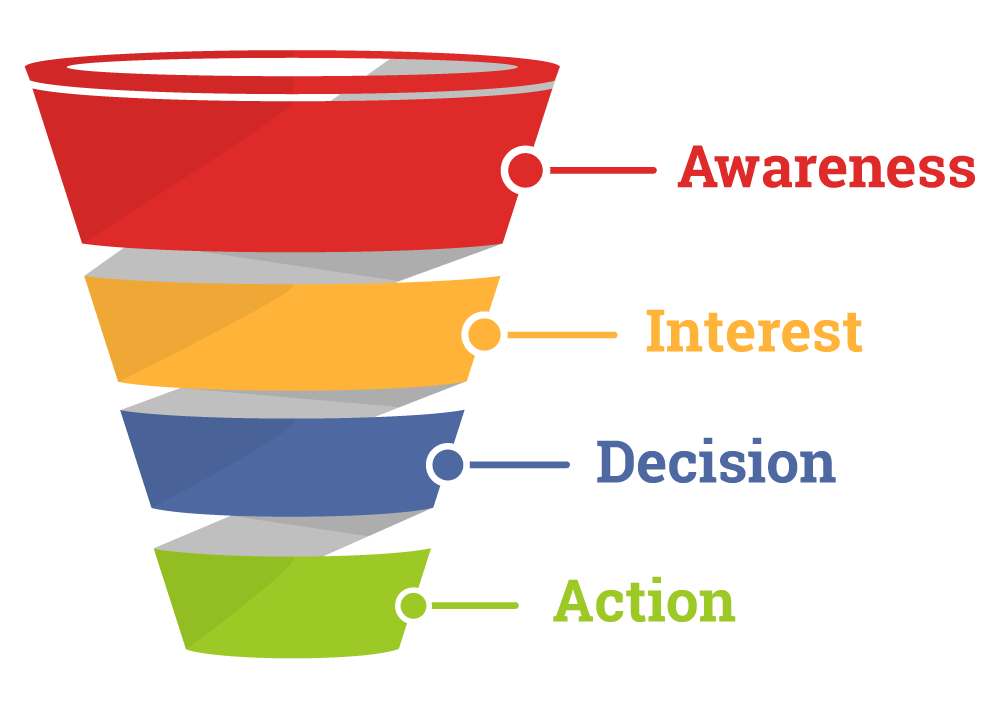Building a successful real estate business is not easy. With the competition, it’s getting harder to grow your business.
A real estate agent is a professional who helps individuals buy, sell, and rent properties. They work on behalf of clients to find properties that meet their needs and budget. Also, they help homeowners to facilitate the sale or rental of those properties.
Real estate agents also provide advice and guidance to clients throughout the buying or selling process. This includes providing information on local market conditions and helping to negotiate deals.

In addition, real estate agents may help clients with paperwork, such as contracts and deeds. Some even assist with the financing of a property purchase. Overall, the role of a real estate agent is to help clients navigate the complex process of buying, selling, or renting property.
How To Start a Real Estate Business
Starting a real estate business can be a rewarding and lucrative career path. But it requires careful planning and consideration. Here are some steps to help you get started:
Develop a real estate business plan
A solid business plan is essential for any successful business, and real estate is no exception. Your business plan should include a mission statement, a description of your target market, a financial plan, and a marketing plan.
Choose your real estate business structure
Decide whether you want to operate as a sole proprietorship, a partnership, a limited liability company (LLC), or a corporation. Each structure has its own benefits and drawbacks. So consider your personal situation and the needs of your business before making a decision.
Obtain the necessary licenses and permits
Depending on where you live, you may need to obtain a real estate license and other permits before you can start your business. Check with your state or local government to find out what licenses and permits you need and how to obtain them.
Build your team
As a real estate entrepreneur, you’ll need a team of professionals to help you succeed. Consider hiring an accountant, a lawyer, and a real estate agent to help you with the day-to-day operations of your business.
Market your real estate business
Once you’re ready to start doing business, you’ll need to promote your services to potential clients. Consider using a combination of traditional and digital marketing techniques. You may start with networking, advertising, and social media, to reach your target market and build your client base.
Stay organized
As your business grows, it’s important to stay organized and manage your time effectively. Use a CRM system to keep track of leads and clients, and establish a daily routine to help you stay on top of your tasks and responsibilities.
By following these steps and staying focused, you can successfully launch and grow your real estate business. Good luck!
How to Grow Your Real Estate Business
It’s important to continue growing and expanding in order to stay competitive and increase your profits.
Here are some tips to help you grow your real estate business:
Focus on building relationships
In the real estate industry, relationships are key. Focus on building strong relationships with your clients, other real estate professionals, and your local community. By fostering positive connections and providing excellent customer service, you’ll be able to grow your business and expand your network.
Stay up to date with industry trends and changes
The real estate industry is constantly evolving, so it’s important to stay on top of industry trends and changes. Attend conferences and workshops, read industry publications, and network with other real estate professionals to stay informed and stay ahead of the competition.
Diversify your services
To grow your business, consider diversifying your services to meet the needs of a wider range of clients. For example, you could offer property management services, real estate investment advice, or real estate financing options to boost sales.
Expand your geographic reach
While it’s important to establish a strong presence in your local market, consider expanding your reach to new geographic areas. This could mean opening a new office in a nearby city or partnering with other real estate agents in different regions. You may also use online marketing and advertising to reach a wider audience.
Invest in technology
Technology can play a big role in helping you grow your real estate business. Consider investing in a CRM system to manage your clients and leads, using social media and other online tools to promote your services. This includes adopting new technologies like virtual tours and 3D imaging to enhance the customer experience.
By implementing these strategies, you can grow your real estate business and achieve success.
How to Sell More Property
If you’re a real estate agent looking to increase your sales, there are several steps you can take.
Here are some tips to help you sell more real estate:
Provide excellent customer service
In the real estate industry, providing exceptional customer service is essential. This means being responsive to clients, providing them with valuable information and resources, and going above and beyond to meet their needs. By prioritizing customer service, you’ll be able to build trust and rapport with clients. This will increase your chances of making a sale.
Stay up to date with market trends
To be successful in real estate, it’s important to stay informed about market trends and changes. This means staying current on local and national real estate market data, as well as staying aware of changes in local zoning and development. By staying up to date, you’ll be able to provide valuable insights and advice to clients and help them make informed decisions.
Leverage technology
Technology can play a big role in helping you sell more real estate. Consider using tools like virtual tours, 3D imaging, and online marketing to enhance the customer experience and make it easier for clients to learn about and view properties. By leveraging technology, you’ll be able to reach a wider audience and increase your chances of making a sale.
Network and build relationships
In the real estate industry, relationships are key. Consider networking with other real estate professionals, building relationships with local businesses and community organizations, and attending industry events and conferences to expand your network and build your reputation. By building strong relationships, you’ll be able to increase your exposure and generate more leads.
Be proactive and persistent
To succeed in real estate, you need to be proactive and persistent. This means following up with leads, reaching out to potential clients, and staying in touch with clients even after a sale has been made. By being proactive and persistent, you’ll be able to generate more business and increase your sales.
By implementing these strategies and focusing on providing excellent service to your clients, you can increase your chances of success in the real estate industry and sell more properties.
How To Implement Digital Marketing for Real Estate Agents
Digital marketing can be a powerful tool for real estate professionals looking to reach new clients and promote their services. Here are some tips for using digital marketing to promote your real estate business:
Create a website
A professional, well-designed website is essential for any business, and real estate is no exception. Your website should include information about your services, your team, your listings, and your contact information. It should also be mobile-friendly and easy to navigate.

Use social media
Social media platforms like Facebook, Instagram, and LinkedIn can be valuable tools for promoting your real estate business. You may use these platforms to share information about your listings, your team, and your local market, and to engage with potential clients.
Invest in online advertising
Online advertising, such as Google AdWords and Facebook Ads, can be a powerful way to reach potential clients and promote your real estate business. Consider using targeted ads to reach specific demographics or to promote specific listings.
Create engaging content
In today’s digital landscape, content is king. Consider creating blog posts, videos, and other engaging content that provides value to potential clients and showcases your expertise in the real estate industry.
Use email marketing
Email marketing can be an effective way to keep in touch with potential clients and promote your real estate business. Consider using email newsletters to share information about your listings, your team, and the local real estate market, and to provide valuable resources and information to potential clients.
By implementing these digital marketing strategies, you can effectively promote your real estate business and reach new clients online.
Content Idea for Real Estate Agent
As a real estate agent, there are many different types of content you can create to promote your business and engage with potential clients. Here are some ideas for content that real estate agents can create:
Market updates and local news – real estate
Provide potential clients with information about the local real estate market. This includes recent trends, market statistics, and news about local developments and zoning changes.
Property listings – real estate
Share information about the properties you have available for sale or rent, including detailed descriptions, photos, and virtual tours.
Tips and advice – real estate
Provide potential clients with valuable tips and advice about the home buying and selling process, including information about financing, inspections, and negotiations.
Behind-the-scenes content – real estate
Share behind-the-scenes content that gives potential clients a glimpse into your day-to-day life as a real estate agent. This includes photos and videos of you working with clients, attending open houses, and more.
Interviews and case studies – real estate
Interview successful clients and share their stories and experiences to showcase your expertise and provide potential clients with valuable insights and inspiration.
By creating engaging and informative content, you can promote your real estate business and connect with potential clients.
Sales Funnel For Real Estate Agent
A sales funnel is a marketing and sales tool that helps businesses understand and visualize the customer journey. It starts from initial awareness of a product or service to the final purchase decision.
In the context of a real estate business, a sales funnel can be a valuable tool for understanding and improving the process of converting potential clients into buyers or sellers.

The typical sales funnel for a real estate business consists of four key stages: awareness, interest, decision, and action.
Awareness
In the awareness stage, potential clients become aware of your real estate business and the services you offer. This stage is all about getting the attention of potential clients and making them aware of what you have to offer.
Interest
In the interest stage, potential clients start to take an interest in your services and what you have to offer. This stage is all about providing information and engaging with potential clients to help them understand why your services are the right choice for them.
Decision
In the decision stage, potential clients make a decision to use your services to buy or sell a property. This stage is all about providing potential clients with the information they need to make an informed decision and helping them overcome any objections they may have.
Action
In the action stage, potential clients actually use your services to buy or sell a property. This stage is all about providing a smooth and seamless experience that makes it easy for potential clients to work with you and complete a successful transaction.
By understanding and visualizing the sales funnel for your real estate business, you can identify potential bottlenecks that may be preventing potential clients from using your services. This can help you improve the customer experience and increase the chances of converting potential clients into buyers or sellers.
What Sales Funnel Should Real Agent Use
There is no one-size-fits-all sales funnel for real estate agents. It depends on a variety of factors, including your target market, your services and offerings, and your business goals.
Here are some common types of sales funnels that real estate agents may use:
The traditional sales funnel for real estate
The traditional sales funnel is a linear model that consists of four stages: awareness, interest, decision, and action. This type of sales funnel is a good starting point for real estate agents who are just getting started with sales funnel marketing.
The inverted sales funnel for real estate
The inverted sales funnel, also known as the reverse funnel, flips the traditional sales funnel model on its head. In this model, the action stage is at the top of the funnel, followed by the decision stage, the interest stage, and the awareness stage.
This type of sales funnel is well-suited for real estate agents who are targeting high-value clients and want to focus on providing an exceptional customer experience.
The multi-step sales funnel for real estate
The multi-step sales funnel is a more complex model that includes additional stages beyond the traditional awareness, interest, decision, and action stages.
This type of sales funnel is well-suited for real estate agents who are offering a wide range of services and want to provide potential clients with more detailed information and resources.
Ultimately, the right sales funnel for your real estate business will depend on your unique goals, target market, and services. Experiment with different funnel models and track your results to determine which type of sales funnel is the most effective for your business.
How To Use ClickFunnels For Real Estate Agents
ClickFunnels is a popular online marketing and sales platform that can be used by real estate agents to build and grow their businesses. Here are some steps to help you use ClickFunnels to build your real estate business:
Sign up for a ClickFunnels account
To use ClickFunnels, you’ll need to sign up for an account. ClickFunnels offers a free 14-day trial, so you can try the platform before committing to a subscription.
Create a real estate sales business funnel
Once you have a ClickFunnels account, you can start building your sales funnel. ClickFunnels offers a variety of pre-designed templates and tools to help you create a professional-looking sales funnel that fits your business needs.
Add your real estate business listings
Once you have your sales funnel set up, you can start adding your real estate listings to the funnel. ClickFunnels makes it easy to add and manage your listings, so you can keep your sales funnel up to date and provide potential clients with the latest information about your properties.
Promote your real estate business sales funnel
Once your sales funnel is set up and your listings are added, you can start promoting your sales funnel to potential clients. ClickFunnels offers a variety of tools and integrations to help you promote your sales funnel. This includes email marketing, social media marketing, and paid advertising.
By using ClickFunnels to create and manage your sales funnel, you can streamline and automate your real estate business and make it easier to reach and convert potential clients.
Lead Generation Strategy for Real Estate Business Agent
Lead generation is an essential part of any successful real estate business. As a real estate agent, you need to constantly be on the lookout for new leads and opportunities to connect with potential clients.
Here are some lead-generation strategies that can help you grow your real estate business:
Networking
Networking is one of the most effective ways to generate leads for your real estate business. Attend local events and conferences, join industry organizations and associations, and connect with other real estate professionals to expand your network and build relationships that can lead to new business opportunities.
Social media
Social media platforms like Facebook, Instagram, and LinkedIn can be valuable tools for generating leads for your real estate business. Use these platforms to share information about your listings, your team, and your local market, engage with potential clients and build relationships.
Referrals
Referrals are a powerful source of leads for real estate agents. Consider offering incentives and rewards to clients who refer their friends and family to your business. And, be sure to thank and acknowledge your referral partners to build trust and encourage further referrals.
Content marketing
Content marketing can be a powerful way to generate leads for your real estate business. Consider creating blog posts, videos, and other engaging content that provides value to potential clients and showcases your expertise in the real estate industry.
Paid advertising
Paid advertising, such as Google AdWords and Facebook Ads, can be an effective way to reach potential clients and generate leads for your real estate business. Consider using targeted ads to reach specific demographics or to promote specific listings.
By implementing these lead generation strategies and continuously working to expand your network
Lead Magnets for Real Estate Agents
A lead magnet is a piece of content or an offer that is designed to attract potential clients and encourage them to provide their contact information. As a real estate agent, you can use lead magnets to generate leads and build your email list.

Here are some examples of lead magnets that real estate agents can use:
E-book or guide
Create an e-book or guide that provides valuable information about the home buying or selling process. This could include tips and advice for first-time home buyers, a step-by-step guide to the home-buying process, or a checklist of things to consider when selling a home.
Checklist or template
Create a checklist or template that potential clients can use to help them organize and plan their home buying or selling journey. This could include a checklist of tasks to complete before putting a home on the market, a template for creating a budget for a home purchase, or a checklist of items to consider when touring a home.
Free real estate business consultation or evaluation
Offer potential clients a free consultation or evaluation of their homes. This could include a free home value estimate, a free consultation to discuss the home buying or selling process, or a free evaluation of a potential home purchase.
Exclusive access to real estate business listings
Offer potential clients exclusive access to listings before they are available to the general public. This could include VIP access to new listings, exclusive sneak peeks at upcoming listings or early access to open houses.
By offering valuable and engaging lead magnets, you can attract potential clients and encourage them to provide their contact information. This can help you build your email list and generate leads for your real estate business.
Email Marketing For Real Estate Business
Email marketing can be a powerful tool for real estate agents looking to promote their services and reach potential clients.

Here are some tips for using email marketing to promote your real estate business:
Build your email list
To be effective, email marketing requires a well-defined target audience. As a real estate agent, this means building an email list of potential clients who are interested in buying or selling property in your area. Consider using sign-up forms on your website and social media pages, as well as networking and referrals, to build your email list.
Create engaging content
In email marketing, content is king. To be effective, your emails need to be engaging, informative, and relevant to your audience. Consider creating a mix of informational content, such as market updates and local news, and promotional content, such as special offers and listings, to provide value to your email subscribers.
Use a professional email marketing platform
To effectively manage and send your email campaigns, you’ll need a professional email marketing platform. There are many options available, including GetReseponse, Mailchimp, and AWeber. These platforms make it easy to create and send email campaigns, as well as track and analyze the performance of your emails.
Monitor and analyze your results
To improve the effectiveness of your email marketing, it’s important to monitor and analyze the performance of your campaigns. Look at metrics such as open rates, click-through rates, and conversion rates to understand how your emails are performing and what you can do to improve their effectiveness.
By implementing these email marketing strategies, you can effectively promote your real estate business and reach potential clients via email.
Summary of Digital Marketing for Real Estate Agents
Digital marketing is an essential part of any successful real estate business. By leveraging digital tools and platforms, real estate professionals can reach a wider audience, engage with potential clients, and promote their services.
To effectively use digital marketing for real estate, it’s important to have a well-defined strategy that aligns with your business goals and target market. This may include tactics such as creating a professional website, using social media to engage with potential clients, investing in online advertising, creating engaging content, and using email marketing to stay in touch with potential clients.
By implementing a well-planned digital marketing strategy, real estate professionals can effectively promote their businesses and reach potential clients online.


